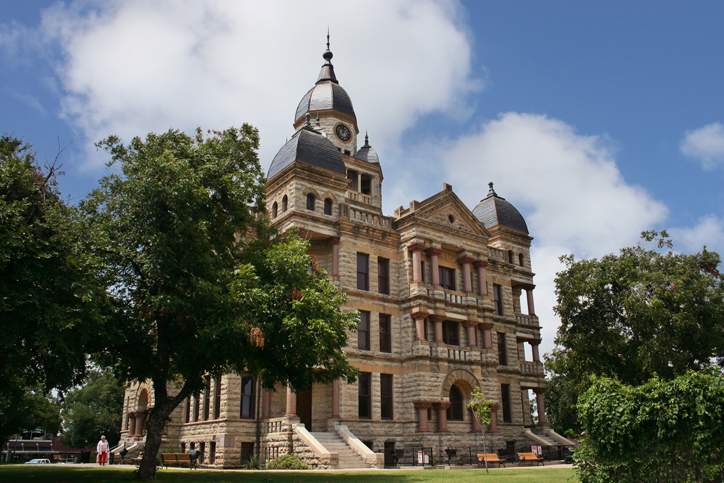Judge Denies Texas’ Bid to Shut Down Migrant Shelter Network in El Paso
BenchMark Website Design July 3, 2024 0 COMMENTS
An El Paso judge on Tuesday denied Texas’ request to shut down a migrant shelter network that the state alleged was violating state law by sheltering people suspected of being undocumented immigrants.
Two weeks prior, lawyers from the Texas Attorney General’s office argued before state district Judge Francisco Dominguez that Annunciation House in El Paso should be closed for allegedly violating state laws prohibiting human smuggling and the operation of a stash house.
In his ruling, Dominguez stated that the state’s claim, “even if accepted as true, does not establish a violation of those provisions,” according to the order. He further ruled that state laws in this context are preempted by federal law and thus “unenforceable.”
Additionally, the judge determined that the state’s claim “violates the Texas Religious Freedom Restoration Act by substantially burdening Annunciation House’s free exercise of religion and failing to use the ‘least restrictive means’ of securing compliance with the law.”
The office of Attorney General Ken Paxton did not immediately respond to a request for comment on the ruling.
Jerry Wesevich of Texas RioGrande Legal Aid, representing the shelter network, expressed relief, stating, “The volunteers of Annunciation House have a lot of work to do and they just continue to do it. They can just do it more at peace today than they did yesterday. There is some relief at knowing that the court agreed with their view of the law.”
The conflict began when Paxton’s office initially sought records from Annunciation House about the shelter’s clients in February. The shelter’s director, Ruben Garcia, was given a day to produce the documents. Garcia’s lawyer responded, asserting that the deadline was insufficient and sought judicial guidance on the legality of releasing certain documents. Interpreting this as noncompliance, Paxton’s office filed a countersuit to shut down the shelter network.
Annunciation House, which opened its first shelter at a Catholic church nearly 50 years ago, has since assisted hundreds of thousands of refugees passing through El Paso, according to the shelter.
Paxton’s lawsuit against Annunciation House occurs amidst a broader campaign by right-wing Christian groups and figures to depict immigrants as part of a Democratic strategy to undermine American Christianity, despite many migrants being Christian themselves.
Lt. Gov. Dan Patrick echoed these sentiments at the Republican Party of Texas’ convention in May, claiming that immigrants were part of a “Marxist, socialist left” plan to “take God out of the country.” At the same event, Paxton’s wife, state Sen. Angela Paxton, framed Republicans’ efforts as a battle “against spiritual forces of evil in the heavenly realms.”
Far-right Catholic groups have also mobilized against organizations like Catholic Charities, labeling them as “enemies of the people” and calling for the defunding of bishops who assist migrants. In a 2022 interview with the right-wing group Church Militant, U.S. Rep. Marjorie Taylor Greene, R-Georgia, asserted that Catholic Charities’ work was evidence of “Satan controlling the church.”
The El Paso area has a rich history as a significant gateway for immigrants entering the United States. Situated on the U.S.-Mexico border, El Paso has long been a point of entry and refuge for people seeking new opportunities or escaping hardships. The region’s role in immigration dates back to its early history when Spanish explorers and settlers established missions and settlements in the 17th century. El Paso became a crucial crossing point for settlers moving westward during the 19th-century westward expansion, bolstering its reputation as a hub of migration and cultural exchange.
In the early 20th century, the Mexican Revolution (1910-1920) drove many Mexicans northward, seeking safety and stability. El Paso, due to its proximity and accessibility, became a sanctuary for thousands of refugees. This period marked the beginning of a significant Mexican-American community in the area, shaping the city’s cultural and social fabric.
The Bracero Program, initiated during World War II and lasting until 1964, further cemented El Paso’s status as a vital entry point for Mexican laborers coming to the U.S. to work in agriculture and other industries. This program facilitated legal immigration and contributed to the growth of the local economy and population.
In recent decades, El Paso has continued to be a focal point for immigrants from various countries, especially during periods of political instability and economic hardship in Latin America. The city’s shelters, like Annunciation House, have played crucial roles in providing assistance and support to these populations, reflecting El Paso’s enduring legacy as a welcoming gateway for those seeking a better life in the United States. El Paso offers a multitude of opportunities for migrants to become assimilated into the community, from businesses such as bakeries, restaurants and good legal representation, such as an El Paso Bicycle Accident Attorney.
RELATED ARTICLES
Recent Posts
- Political and Ideological Differences Impacting Divorces and Custody Battles
- Major Theft Ring Busted: Over $200,000 in Stolen Lego Sets Recovered in Eugene, Oregon
- Judge Denies Texas’ Bid to Shut Down Migrant Shelter Network in El Paso
- Single Mother in Memphis Seeks Help for Troubled Son Amid Rising Concerns
- California’s Proposition 47 Reform Sparks Intense Political Debate Over Public Safety
Categories
Our Supporters
Gold Supporters
Christopher Simon – Atlanta Truck Accident Lawyer
Skiver Law Firm – Phoenix Truck Accident Lawyer
Winer, Burritt & Scott, LLP – Los Angeles Clergy Abuse Law Firm
Michael E. Fenimore P.A. – Pensacola Car Accident Lawyer
Pillsbury & Coleman, LLP – San Mateo Long Term Disability Lawyer
The Law Office of Randall J. Wolfe, P.C. – Oregon City Personal Injury Lawyer
Davies Hothem Injury Law – Buford, GA Car Accident Attorney
Houston Federal Criminal Defense Attorney
Darrow Law Firm – Houston Federal Crime Lawyer
Kansas City Personal Injury Lawyer
Atlanta Truck Accident Attorney
Aitken *Aitken* Cohn Trial Lawyers – Santa Ana Personal Injury Attorneys
Dawson Law Group- Portland Personal Injury Attorneys
CT Mediation Center- New Haven Family Law Attorney
Little Rock Personal Injury Lawyer
Katy Car Accident Lawyer
Franklin Divorce Attorney
Palermo Law- Long Island Personal Injury Lawyer
Dan Rose – San Francisco Car Accident Attorney
Taylor Siemens – Liberty, MO Personal Injury Attorneys
Pfeifer Law Firm – Little Rock Car Accident Lawyer
Walkup, Melodia, Kelly & Schoenberger – San Jose Car Accident Attorney
Solomon, Dwiggins, Freer & Steadman – Las Vegas Business Litigation Lawyer
Roane Law – Asheboro NC Car Accident Lawyer
Dorsch Law Firm – Overland Park Estate Planning Attorney
The Tennessee Sledgehammer – Hermitage, TN Car Accident Lawyer
Cook Law Group – Gainesville, GA Car Accident Lawyer
Simon Bridgers Spires – Atlanta Personal Injury Lawyer
Injury Law Associates – Kansas City Motorcycle Accident Lawyer
Potts & Potts – Honolulu Personal Injury Attorney


